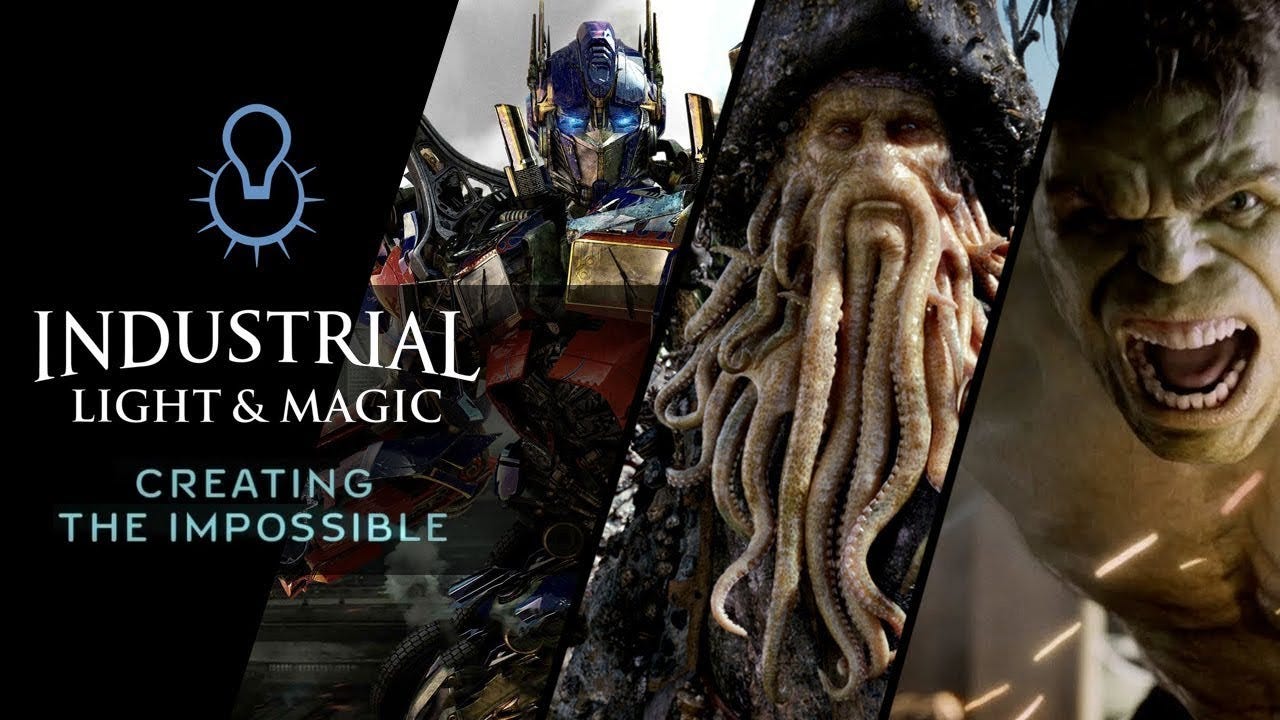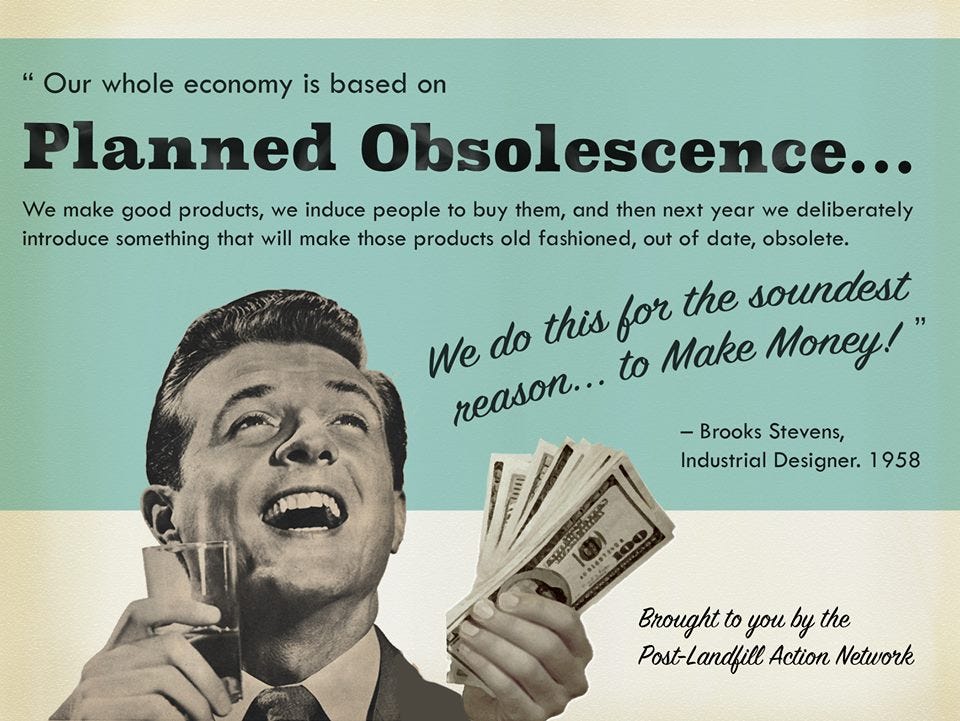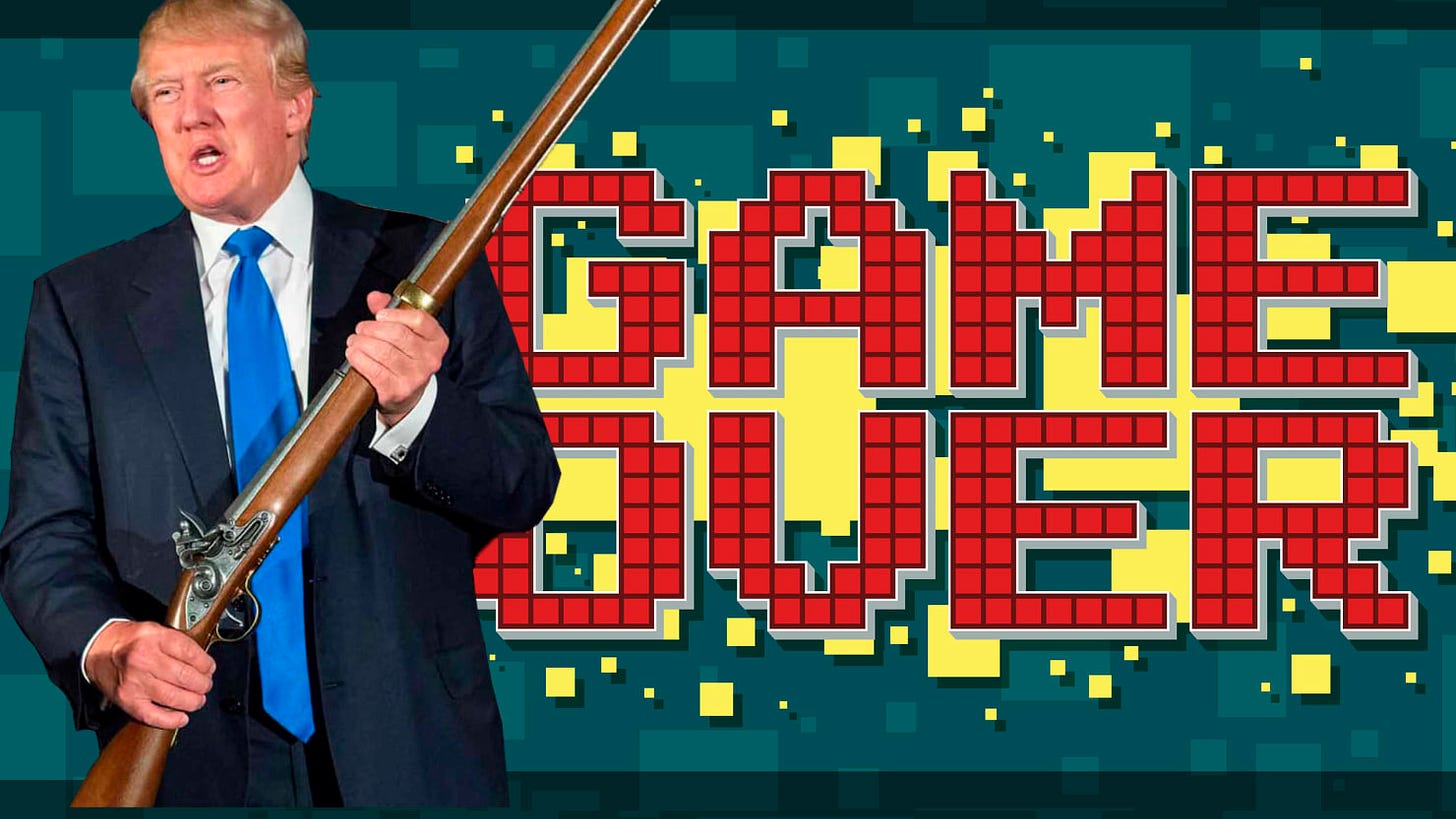Critique of a Culture of Critique
Phone games are the future of cinema and you can't do a thing about it
I’ve previously tried to collect my thoughts on this phenomena that crystallized in the form of the RedLetterMedia Star Wars prequel “review” movie from 2009. It was the first proof of concept of a certain kind of production – much like the star wars prequels themselves were, first and foremost, a proof of concept for a kind of industrial (light and magic) production of *film*.
Internet Man “Don Jolly” has made a very good and concise explanation for how the entire narrative surrounding the star wars prequels being “bad” is missing the point, which is, George Lucas was using the production of the three movies to make extremely aggressive business moves in the film industry, in a *production* of film. Lucas single-handedly digitized a billion dollar industry, and enforced certain standards for “CGI” production – of which he owned the monopoly at the time – by requiring certain things legally from theatres. I recommend Jolly’s video on the subject. It’s not a movie review. it’s not talking about lightsabres and who’s stupid. It’s an industrial analysis. It’s a economic, business analysis. It’s brilliant. In a world where the human race worth worthy, and didn’t aim downwards, Jolly would be enjoying a greater financial success than Mike Stoklasa.
What George Lucas did for cinema, knowingly and planned, Mike Stoklasa did for Youtube, accidentally. He created a format and proved it’s workability. What did he create, and why did it work?
A long, irony-ridden critique, written and acted in character, because (in his own words) of a shame associated with “caring” about something “stupid” like “star wars and star trek”. Putting the self-loathing in the character, on the screen, he is already pre-ashamed for the audience - *we* don’t need to feel ashamed, the catharsis is already delivered in the product. Classic coffee without cream Zone. Classic “canned laughter in sitcoms, so we can watch it without even having to laugh ourselves”. Zizek would be proud.
A critique show, which was a proof of concept for profitability on Youtube – by way of advertisement. Mike Stoklasa single-handedly reinvented television. But if it hadn’t been him, someone else would. It is just a fun thing to say.
But the more interesting thing is the content – why does critique resonate? Why is critique of the Thing more engaging than The Thing Itself? Why am Culture of Critique? Pls respond.
The reason we like critique and enjoy-through-critique, is because every piece of “media” we are familiar with is in a process of optimising for advertising, of becoming more and more, advertising. The fullest degree we know at this point being, mobile “clicking” games, for reasons I’ve previously covered.
The “art” itself is worthless – it does not aim at the heavens. “There Is No Art Today that Aims Towards The Heavens”, someone might say. No one who has a hand in the production of movies, music, “entertainment” - and least of all, video games, desire to “make a good product” - they don’t desire to glorify God through Great Works. They don’t desire to make a great work. They desire to meet market demand, and optimise for advertisement, revenue, etc. Addiction, retardation.
Video games are bad now, not because there was something magical about the 90’s that was somehow lost, but because they simply did not have the tools and knowhow of how to best create addiction machines. The rise of industrial movie making, qua don jolly star wars prequels → redlettermedia, is, culturally the process of the general public trying to circumvent the lacking in the “medium”, the art itself, to full-fill the role of “shared experience” - the communal aspect of art, traditionally shared in religious festivals, harvest celebrations, and so on. What in true Art is found within the artistic piece, is now only available “outside” of it – in the “relation” to it. In critique.
I know full well Victoria 3 will be shit – that’s not just a fun meme joke, not just funny /v/ “your favourite vidya is shit”. It will be shit. It will be exactly as much of a phone game as they can get away with making it, and they will overshoot, and it will be a mild failure, not being a retard addict game, nor being for autists. Because their company is run by a woman who’s entire career is in running fucking casinos. Because they have made too much money, been too successful, and are in a creative decline. Victoria will be shit, and Paradox will never produce anything worth paying money for again.
All video game design will tend towards casinos. The “format” was already perfected many years ago.
And yet, I spent my evenings watching a livestream discussion of autists discussing the public development diaries (advertisement) for 3 hours, and enjoying it, because they are critics of it, and in our non-enjoyment of it, we achieve the social aspect of art. There’s a guy live-shitposting about how there’s not enough Evola in the developer’s libraries, and calling them meme Reddit Marxists, not containing power level at all. Deep relief, deep breath, Aaah. That’s some shit I can relate to.
I don’t watch this, in some primitive hope that maybe I’m wrong and Victoria 3 will be good and I get to have a little funny game to play and have funsies. I am watching it for emotional catharsis about the fact that I live in a world where I am lied to at all waking moments of my life by fat swedes who wants to sell me a shitty phone game. Catharsis from the irritation of being hyper-stimulated in a world of planned obsolescence of every single aspect of human life for profit. Catharsis from living in a society that aims downwards, towards the lowest common denominator, in all things, all the time, forever. I watch it to Glorify God – because this shallow thing, this shared snark in the critique, is the closest thing we have, to anything aiming upwards.
Critique and snark does not aim up or down. It deliberately does not condescend to the audience, and it deliberately does not aims for Glory. It aims for stability, for non-movement. And compared to, everything else, every product, every production, that is relatively, a step up.
Can video games ever be art? Yes. The Art of the Deal. You got conned. I have all your dollars now, sucker. Better luck next time.
It’s hard to walk away from the table on a loss. But it’s harder to walk away from it on a win, so consider your options.
Since crystallising into a commercial product in 2009’s RLM review, this solution for the human need/social aspect of “Art” has been industrialised, mass produced and sold back to the general public on youtube in factory produced shoddy chinese knockoffs. It’s the direct causal link to the open mouthed redditface man picture, the soyface.
It is no longer possible to sustain ourselves in stasis. It is no longer enough to aim at non-movement, to avoid the fall downwards towards the lowest common denominator.
The means by which we do so are slowly being removed, and substituted with Chinese knockoffs. The shared-experience aspect of the “Art” is being removed in favour of “your own story (tm)”, of “instanced raids”, of “algorithmically optimised timelines”, of “recommended content”. All socialisation is being removed the moment the Machine identifies it, and replaced with a substitution that can be taxed.
It is no longer possible to sustain ourselves in stasis. I propose that you Aim Upwards and make an effort to Glorify God Through Great Works.







Netflix is planned mediocrity is planned obsolescence. Netflixification of the internet. We can’t “save” the “internet”. No one can “save” the world, no one can save anything. But we can accurately describe it so we know what where doing and can orient ourselves better.
A funny pattern I have noticed in my surveillance stats of your interactions with my posts:
One in four people will click on the email to read the post,
One in four people will click on a link to another thing in the post.
assuming this is a constant, and by doing a bit of numerology magic you could write a series of links which mathematically it would be impossible for anyone to ever read. Or you could be nice and make it so only one human being ever would. A message in a bottle for the internet age.
Also, I forgot who it was that wrote about the driving model for all media going forward is the theme park. Whoever it was, did so unironically and with several tips for how ad execs could get in on the trend and turn their brands into digital theme parks too (by partnering with Roblox or Fortnite). I think the theme park goes beyond the digital, into the all-pervasive realm of our daydreams and nightmares.
Disney doesn't care about its individual movies or shows anymore, they are just, as Martin Scorsese accurately put it, "amusement park rides". The point is world-building, to create a fantasy that feels so real, we never want to leave. It's David Foster Wallace's vision of the "Infinite Jest" movie, which viewers find so entertaining they keep watching until they die, only Disney wants to keep monetizing, so while the movie "ends" in the theater, it plays on through every material surface possible outside it.
It's piped into our heads through endless Youtube clips over our meals, smartphone games during work breaks, podcasts while we work out, and Spotify playlists during our chores. You don't need a headset to experience VR, you can be simultaneously here driving an Uber and on Endor piloting the Millennium Falcon. You can be punching in data points while mentally punching out Hydra henchmen.
And when your day is over, you can fire up the Avengers game (which doesn't have to be good or even finished, it just has to deliver on the basic requirements of allowing you to do the shit you would be able to do alongside the characters you'd be able to do it with if you lived in the Marvel-verse), or get a fresh dose of narrative from The Mandalorian on Disney+.
Just like theme park rides, these "experiences" deliver the thrills but very little of the meaningful substance of the original works (I don't even mean Star Wars, but "Dune" and "2001: A Space Odyssey" from which George Lucas cribbed the visuals but discarded the ideas). Instead of pointing to something else, something higher as you say, it merely points back at itself. The Hindus would call this "maya", "that which exists, but is constantly changing and thus is spiritually unreal".
Perhaps this is another reason why we're so compelled to critique it. In addition to trying to fill in what would actually make it worthwhile to engage with by breaking it down and rebuilding it with our words, we are also just doing a version of what most bored suburban teens did during their summer breaks: Wandering the same tired Six Flags with their buddies while making snarky comments about the costumed goons, plastic backdrops, and overly-eager staff, trying to establish some semblance of a real identity outside the Matrix with what little subversion we can muster.